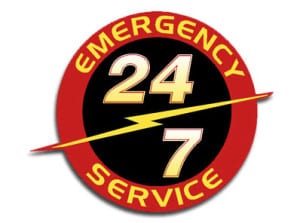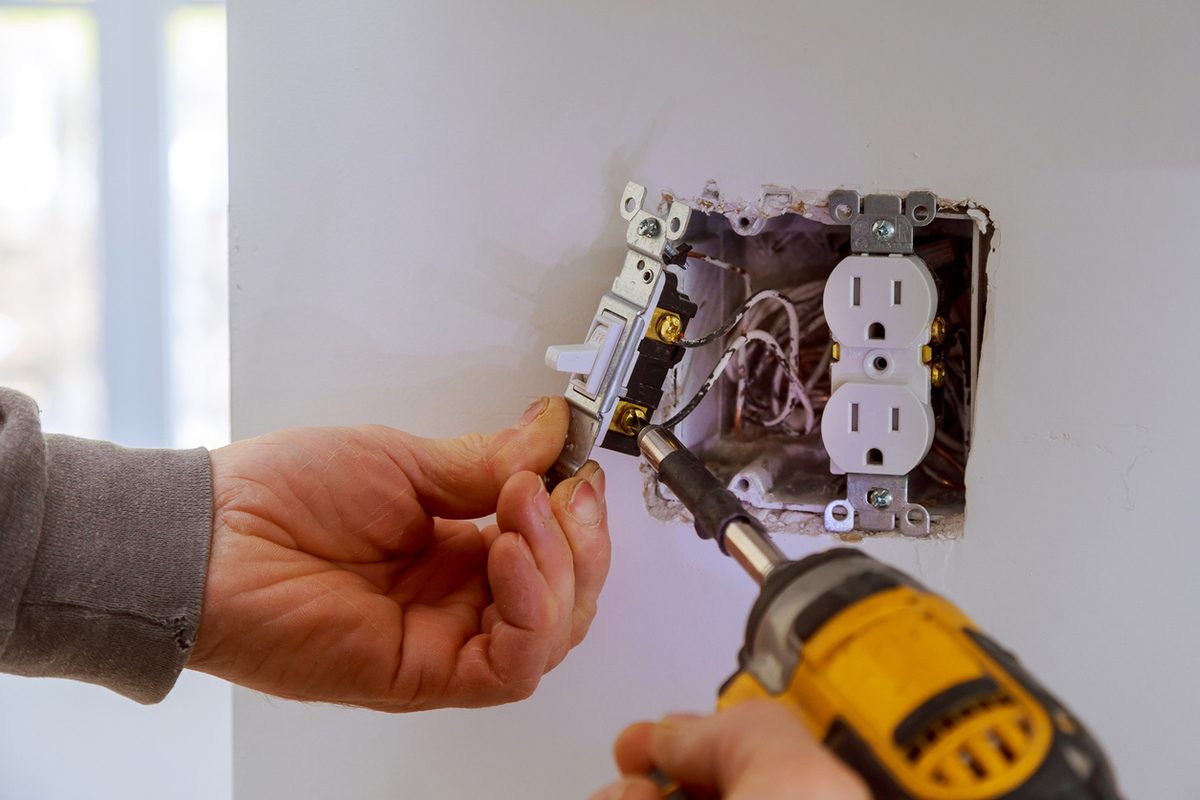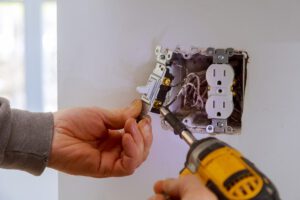Electricians need a diverse set of skills to work safely and effectively. They should enjoy a challenge and be comfortable working in various environments.
Electrician Boca Raton will be able to explain their approach and its reasons. This helps to build a trusting relationship and ease any concerns from clients.
The educational requirements for an electrician vary by state, but usually include a high school diploma or equivalent and completion of a formal apprenticeship. Many vocational and trade schools offer financial aid options, including grants, scholarships and student loans. Filling out the FAFSA (Free Application for Federal Student Aid) form is a good idea before attending any trade or vocational school to determine the level of financial assistance you might qualify for.
Most electricians start as registered apprentices in training programs that are approved by the local union or government. Initially, they perform very basic tasks and gradually gain more responsibility as they refine their skills. Depending on the program, it may take up to four years to complete an apprenticeship and become a licensed electrician.
Electricians are responsible for installing and maintaining the wiring, systems and fixtures in buildings. They must follow all electrical codes and safety regulations to ensure that they do not cause fires or other hazards. This job requires extensive knowledge of electrical components and circuits, including how to read blueprints and diagrams, as well as logical problem-solving skills.
In order to work safely with electrical wires, electricians must have normal color vision to be able to discern colors that are used in wiring. They also must be physically able to stand for long periods of time and climb ladders or scaffolding. The ability to make quick calculations using standard equations is also important for electricians.
The demand for electricians is expected to grow due to the ongoing construction of new homes and businesses, as well as the need to replace older electricians who retire or leave the industry. Alternative energy sources such as solar and wind power will also require more electricians to install and connect these systems to the electricity grid.
Continuing education is recommended for electricians, as there are always new technologies and developments that affect the field. In addition, specializing in a specific aspect of electrical work can increase employment opportunities and command higher pay rates. Examples of specializations include residential, commercial and industrial electrical work, as well as life safety and security systems.
Experience
Electrical work is a complex job that requires a wide range of skills. As an electrician, you must be able to think on your feet and troubleshoot electrical problems quickly and efficiently. You must also be able to follow all safety guidelines when working with electricity. If you have these skills, a career as an electrician could be the right choice for you.
In addition to the technical skills that you learn through apprenticeship or trade school programs, an electrician needs several “soft” skills. These are the abilities that help you communicate effectively with customers, manage projects well, and stay up to date on technology trends.
Attention to Detail
One of the most important skills for electricians is the ability to pay close attention to details when performing a task. This is essential because mistakes can be dangerous when working with electricity. It is also necessary for electricians to be able to read blueprints and understand all electrical codes.
Collaboration and Communication
Electricians often work with other construction professionals, including architects and engineers, on new projects. They must be able to collaborate effectively with these colleagues to ensure that the electrical systems are designed properly and meet all specifications. They may also interact with clients or end-users of the electrical system, offering guidance on proper usage, safety precautions, and energy-saving practices.
Physical Stamina
Because they must stand for long periods of time and climb up and down ladders, electricians need to have physical stamina. They also need to be able to lift heavy objects and squeeze into tight spaces. This type of work can be physically exhausting, so it is important for electricians to maintain a healthy lifestyle and take regular breaks when needed.
Aside from physical stamina, electricians need to have good mental agility. They must be able to solve complicated technical issues in the field and remain calm when faced with emergency situations. They must also be able to adapt to changing circumstances and work environments, such as when environmental regulations require them to update electrical systems to improve energy efficiency.
Licenses and Certifications
If you’ve ever dreamed of becoming an electrician, then you should know that there are specific requirements that must be met in order to get licensed. This includes the completion of a formal apprenticeship program under a master electrician, earning a certain number of on-the-job training hours (typically around 8,000), classroom education and passing an exam to become a journey electrician. This is a demanding program that requires an immense amount of work, but it offers stability and good pay once you’re licensed.
Certification programs can also help you move further along in your career, adding to the skills that you have and allowing you to do more specialized work. You can even become certified in areas such as electrical safety, arc flash analysis, cable splicing and more. These types of specialized training are a great way to add value to your resume and can give you an edge in the job market.
Another option for future electricians is to go through community college and obtain an associate degree in electrical engineering or technology. These two-year degrees offer a lot of hands-on experience and can help you get closer to your apprenticeship program. They are also a great stepping-stone to a bachelor’s degree.
The Armed Forces also provide excellent training as an electrician. This can be very valuable to someone who wants to get their foot in the door and begin a career immediately. Many of these courses cover topics like wiring, repairing small electronics and electrical devices, drafting diagrams and much more.
There are also many online colleges that offer courses in the same field, offering students the ability to learn from anywhere in the world and get a well-rounded educational experience. It’s important to do your research and find a school that offers the right type of instruction for you.
Lastly, you should always be aware of the state and local licensing requirements in your area. Most states require that you have a license to work as an electrician, and there may be additional requirements for your specific jurisdiction. You should also look into the recommended insurance policies that you will need to carry, which typically include general liability, worker’s compensation and more.
Insurance
Working with live wires and power tools puts electricians at a high risk of being injured. And while no one can completely eliminate risk, insurance coverage gives electricians the peace of mind to operate their businesses knowing they have protection.
General liability insurance is an essential coverage for any electrical contractor. This policy protects against third-party bodily injury and property damage claims. For instance, if you or one of your employees accidentally damages a client’s possessions while working on their electrical system, the liability policy will cover repair costs and any settlements awarded against your business.
Another important type of electrician’s insurance is professional liability insurance, which is also known as errors and omissions (E&O) insurance. This type of policy covers you if a customer alleges that your work was substandard or didn’t meet industry standards. It can also help pay for legal fees if you are sued over an alleged error.
Workers’ compensation insurance is another vital insurance for electrical contractors. Suppose an employee falls off a ladder or gets an electric shock while working on a jobsite. A worker’s comp policy can cover medical expenses and lost wages. And if the employee needs to see a specialist, the policy may also pay for those medical expenses.
Lastly, an inland marine insurance policy is an option for electricians. This type of insurance protects equipment and supplies from theft or damage while in transit to and from a job site. It may also include coverage for any tools and equipment left behind at a job site until the customer returns to pick them up.
Farmers offers a variety of insurance policies that can help protect an electrical contracting business. These include business owners policy (BOPs), general liability insurance, workers’ compensation insurance, commercial auto insurance, builder’s risk insurance, and equipment and tools coverage.


 When your home or office is experiencing an electrical problem, you need the help of an emergency electrician. Whether your power has gone out, or you’ve had to repair an electrical outlet, you don’t want to wait for an entire day to get the help you need. An emergency electrician can be invaluable, as they can solve all kinds of electrical emergencies, no matter how big or small the problem. It’s better to have a professional do the job quicker than to end up with an under-educated, under-serviced electrician.
When your home or office is experiencing an electrical problem, you need the help of an emergency electrician. Whether your power has gone out, or you’ve had to repair an electrical outlet, you don’t want to wait for an entire day to get the help you need. An emergency electrician can be invaluable, as they can solve all kinds of electrical emergencies, no matter how big or small the problem. It’s better to have a professional do the job quicker than to end up with an under-educated, under-serviced electrician.


